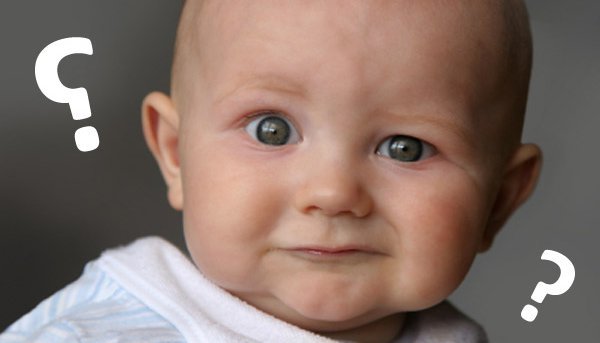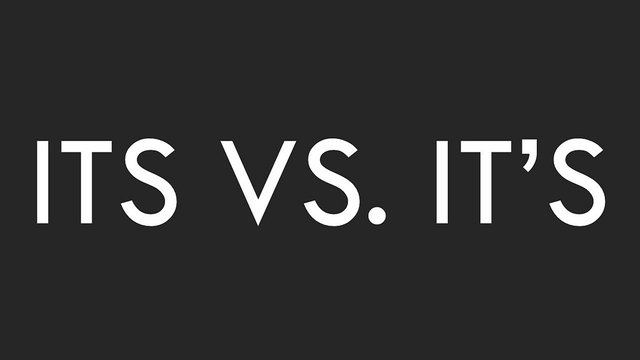ENGLISH LANGUAGE CONFUSING WORDS SERIES #3: ITS VS. IT’S
It’s (pun intended) a very simple thing, right? Its (pun intended, again) usage has been a common mistake even for native speakers (and writers).
DISCLAIMER: I am not an English Native Speaker nor an expert in English language. What I write here are all from experience and research. If you feel I am out of line or say the wrong things, please alert me in the comments. To this effect, I am not immuned to these confusing words myself and this series is as much as an education for me as to those who read these blog posts.
PHOTO SOURCE: LINKEDIN
Its VS. It’s
Most of the time the problem is not more on grammatical error as much as a typographical error. Apostrophe has dual usage: to indicate “possessive” form of a noun or pronoun and contraction. With “it’s”, at first glance, it may signify possessive form, a closer consideration in which it is used will tell us that it is a contraction of the words “it” and “is” or “it” and “has”. Still confused? Let’s drill down a bit more.
[Its] is the possessive form of the pronoun “it”. This definition seems to defy the rule of apostrophe usage. But English language is weird. Let’s look at the examples.
Example 1: Steemit is a great platform and its strengths outweigh its weaknesses.
Example 2: On the day of its demolition, the Berlin wall became a symbol of freedom.
[It’s] is the contraction of the words “it” and “is” or “it” and “has”.
Example 1: It’s a great platform and Steemit’s strengths outweigh its weaknesses.
Example 2: It’s been a great experience being a part of the historic Berlin wall demolition.
Take the Quiz!
Now, let’s test your knowledge and understanding. Click the following link to take the test.
http://blog.oxforddictionaries.com/2015/06/quiz-its-or-its/
More information may be found here:
- http://data.grammarbook.com/blog/pronouns/1-grammar-error/
- http://www.gingersoftware.com/english-online/spelling-book/confusing-words/its-it-s
- http://grammarist.com/spelling/its-its/
- http://www.elearnenglishlanguage.com/blog/english-mistakes/its/


How about doing one on "effect" vs "affect"? Also, "who" vs. "whom". These are the two that I've struggled with most throughout my adolescent life.
I see people misusing "then" quite often, too (using it when "than" is the correct word choice). Using the wrong of the following three: "there", "they're", and "their" comes in at a close second. I also see some misuse of the words: "to", "two", and "too", but not nearly at the rate of the former.
Also, I have a question for you about my own writing, if you feel qualified to answer. I notice that I use the word "that" quite often in my sentences. I often find THAT I'll use this word at least one time per sentence, on average, but THAT I can use it as much as three or four times in a single sentence.
My question is, again, if you feel qualified to answer: isn't it true THAT "that" can simply be dropped from most sentences without changing the meaning of the words, taken together?
Take, for instance, one of my first sentences of this comment:
Does this not have the same exact meaning as the following: "these are the two I've struggled with most throughout my adolescent life"?
In other words, "that" was unnecessary in THAT it really added nothing, correct? I feel as if I'm over-using this word and perhaps weakening my writing by doing so. Any input on this would be appreciated.
I enjoyed this post of yours, btw, and I appreciate your efforts to clear up some of the confusion about this, well, frustrating language of ours ;)
hi @langostein thanks for dropping by. those you mentioned are already in my list. especially the "who" and "whom". you are exactly right when you say people misuse words. but who can blame them English is a crazy, brilliant, weird, versatile language. Hoping this series will clarify these ambiguities.
I am no guru in writing but I appreciate you shooting at me some concerns about your own writing. Both sentences you referred to, IMHO, are well constructed and by including the word "that" in your sentence, you are simply "emphasizing" and "limiting the scope" of the point you are making within the two things THAT you struggled with. I hope this helps. Again, I don't claim this to be accurate or correct but we have many good writers here in Steemit and hoping they see your concern and jump right in to give their expert opinion.
About the word "that", consider the following sentence:
"He gave me an answer but I know that that is not the right one."
Just something for you to ponder. ;-) Have a good one, today!
I appreciate your response.
Thanks for the article, I always mix up between It's and its.. this definitely helped me out.
I'm glad to help clarify this mix up. I am a victim, too. ;-) thanks for dropping by and the upvote.
Thanks for sharing. I always get in trouble with it's and its;)